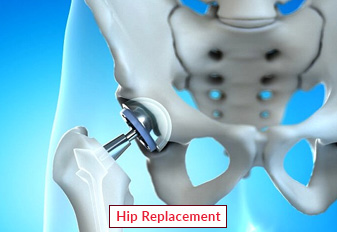Alcohol is one of the most widely used substances worldwide, yet its addictive nature often remains underestimated. For some, social drinking can spiral into a dependency that affects their brain, behavior, relationships, and overall quality of life. If you or someone you know is struggling with alcohol addiction, understanding how it impacts the body and mind is the first step toward recovery.
This blog will explore the science behind alcohol addiction, how to identify the problem, and the crucial role detox plays in recovery. From examining different detox programs to understanding what happens after detox, we’ll provide a comprehensive resource for anyone seeking to overcome alcohol use disorder (AUD).
How Alcohol Changes the Brain: The Science Behind Addiction
Alcohol does more than just impair judgment and motor skills; it alters the way your brain functions. When consumed, alcohol increases dopamine levels, making you feel happy and relaxed. Over time, frequent drinking rewires the brain’s reward system, reducing natural dopamine production and making it harder to feel joy without alcohol.
This creates a vicious cycle in which alcohol becomes the primary source of pleasure and coping, leading to cravings, dependence, and addiction. Long-term use can also damage critical areas of the brain, including those responsible for decision-making, memory, and self-control.
Understanding these neurological changes is key to realizing why breaking free from addiction often requires more than just willpower.
Recognizing the Signs of Alcohol Addiction
Identifying alcohol addiction can be challenging, but there are common signs to watch for:
- Physical Health Issues: Liver damage, frequent illness, or withdrawal symptoms like sweating, nausea, or tremors.
- Behavioral Changes: Neglecting responsibilities, lying about drinking habits, or isolating oneself from friends and family.
- Psychological Signs: Increased anxiety, irritability, or depression when not drinking.
- Continued Use Despite Consequences: Persisting with alcohol despite its negative effects on health, relationships, or career.
If these signs resonate with you or a loved one, it may be time to seek help.
Why Detox is Necessary: The First Step to Recovery
Detoxification, or detox, is the process of removing alcohol from your system. This critical first step allows your body to reset, often marking the beginning of a recovery journey.
Without detox, the body continues to suffer from alcohol’s toxic effects. Furthermore, attempting to quit “cold turkey” without medical supervision can lead to severe withdrawal symptoms, including seizures, hallucinations, and in extreme cases, delirium tremens (DTs), which can be life-threatening.
A medically supervised detox provides a safe and controlled environment for withdrawing from alcohol while managing these symptoms effectively.

Types of Detox Programs: Exploring Your Options
The right detox program depends on your unique situation. Here’s an overview of the most common options:
- Outpatient Detox: Ideal for individuals with mild dependency. You’ll receive medical and psychological support while continuing to live at home.
- Inpatient Detox: Recommended for moderate to severe addiction. This program offers 24/7 medical supervision in a safe, controlled facility.
- Specialized Programs: Some facilities focus on specific needs, such as:
- Detox near me: Local programs may be convenient for those seeking support without traveling far.
- Detox Costa Mesa/Detox Orange County: Top-rated centers in these areas provide a range of treatment options, from standard detox to luxury recovery experiences.
- MAT (Medication-Assisted Treatment) Detox: This program uses FDA-approved medications to reduce withdrawal symptoms and cravings while providing supportive therapy.
Whatever route you choose, the key is finding a program tailored to your needs and circumstances.
What to Expect During Detox: A Step-by-Step Guide
The detox experience varies for each individual. Here’s what you can expect:
- Assessment: Upon arrival, healthcare professionals will evaluate your physical and mental health to create a personalized treatment plan.
- Stabilization: This phase focuses on managing withdrawal symptoms. Medications may be administered to ensure safety and comfort.
- Transition to Further Treatment: Once detox is complete, you’ll transition to the next phase of recovery, such as therapy or support groups.
During detox, you’ll have access to a team of experts who prioritize your safety, comfort, and emotional well-being.
Finding the Right Detox Center: Making an Informed Decision
Choosing the right facility is crucial for a successful detox experience. Here are factors to consider:
- Location: Searching for a “detox near me” can provide convenient options, while specialized centers like those in Costa Mesa or Orange County may offer unique benefits.
- Reputation: Look for centers with high success rates and positive reviews.
- Support Services: Ensure the facility offers comprehensive care, including psychological support and therapy.
Remember, the best facility is one that aligns with your personal needs, whether that’s proximity, the availability of MAT detox, or specialized care.
Saddleback Recovery
209 E 18th St, Costa Mesa, CA 92627
(877) 843-5724
The Role of MAT in Detox: Enhancing Recovery
Medication-Assisted Treatment (MAT) is a cutting-edge approach to detox and recovery. MAT involves the use of medications, such as naltrexone or acamprosate, to help alleviate cravings and withdrawal symptoms.
When combined with counseling and behavioral therapies, MAT has been proven to increase treatment retention and improve long-term recovery outcomes. If you’re considering detox, ask about the availability of MAT at your chosen facility.
After Detox: Continuing Your Recovery Journey
Detox is just the beginning. To achieve lasting sobriety, it’s essential to continue your recovery with additional support, including:
- Therapy and Counseling: Evidence-based methods like cognitive-behavioral therapy (CBT) and motivational interviewing.
- Support Groups: Programs like Alcoholics Anonymous (AA) or SMART Recovery connect you with others navigating similar journeys.
- Lifestyle Changes: Incorporate healthy habits like regular exercise, a balanced diet, and mindfulness practices to rebuild both your body and mind.
Recovery is a lifelong commitment, but with the right resources and support, it’s entirely achievable.
Taking the First Step Towards a Healthier Life
Breaking free from alcohol addiction can feel overwhelming, but you don’t have to face it alone. Detox is the foundation of recovery, offering a safe and structured environment to begin your healing process. Whether you’re exploring “detox near me,” seeking specialized programs like those in Costa Mesa or Orange County, or considering MAT detox, there’s a path forward for everyone.
Take that first step today. Reach out to a trusted detox center and reclaim control of your life. Your healthier, brighter future starts now.





